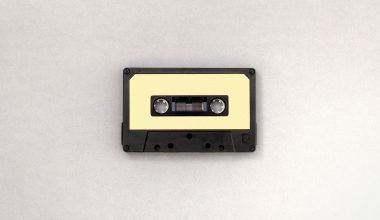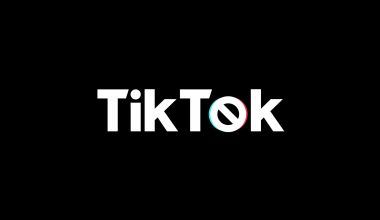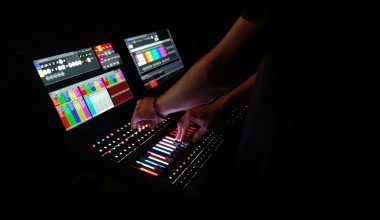What is an ISRC Code, and Why Do You Need One?
If you’re a musician or music producer, you’ve probably heard about ISRC codes. But what are they? An ISRC code (International Standard Recording Code) is a unique identifier assigned to your music tracks. Think of it as a digital fingerprint for your songs. It ensures your music is recognized globally, making it easier to track plays, royalties, and distribution.
Getting an ISRC code might sound complicated, but it’s actually straightforward. Whether you’re an indie artist or working with a label, understanding this process can help you maintain control over your music and maximize your earnings. Let’s dive in and break it down step by step.
Why Are ISRC Codes Important?
Before we get into the how-to, let’s talk about why ISRC codes matter. These codes are essential for anyone releasing music online or through traditional media.
- Royalty Tracking: When your song is streamed, downloaded, or played on the radio, ISRC codes help track the usage so you get paid properly.
- Global Recognition: These codes are internationally recognized, ensuring your music is identified no matter where it’s played.
- Metadata Management: ISRC codes link to important information about your track, like the title, artist, and release date.
Without an ISRC code, it’s like sending your music out into the world without a name tag. You risk losing ownership, recognition, and income.
How to Get an ISRC Code
Now that you know why ISRC codes are important, let’s get to the main question: how do you get one? Don’t worry—it’s not as overwhelming as it might seem.
Step 1: Decide How You’ll Obtain Your ISRC Code
You have two main options to get an ISRC code:
- Through a National ISRC Agency: Most countries have an official ISRC agency. For example, in the United States, the Recording Industry Association of America (RIAA) is the official source.
- Through a Distributor or Aggregator: If you’re releasing music via platforms like TuneCore, DistroKid, or CD Baby, they often provide ISRC codes as part of their service.
If you plan to release a lot of music over time, getting registered as your own ISRC manager might be the better route. On the other hand, if you’re just starting out, using a distributor can save you time.
Step 2: Register with an ISRC Manager or National Agency
If you decide to manage your own ISRC codes, you’ll need to register with your national ISRC agency. The process typically involves filling out an application and paying a small fee.
For example, in the United States, you can register through the RIAA. Once you’re approved, you’ll receive a registrant code. This code is the foundation for generating unique ISRC codes for your tracks.
Step 3: Generate Your ISRC Codes
Once you have your registrant code, you can start creating ISRC codes for your music. Each ISRC code follows a specific format:
- Country Code: A two-letter code representing your country.
- Registrant Code: Assigned to you by your national agency.
- Year of Reference: The year the recording was registered.
- Designation Code: A unique number for each track, typically five digits.
For example, a complete ISRC code might look like this: US-Z03-23-12345.
How to Get an ISRC Code from Distributors
If managing your own codes feels too complicated, don’t worry. Many digital distributors handle this for you. Here’s how it works:
- Sign Up with a Distributor: Choose a platform like DistroKid, TuneCore, or CD Baby.
- Upload Your Music: During the upload process, the distributor will either generate an ISRC code for you or allow you to input one you already have.
- Confirm Details: Make sure all the metadata, like your song title and artist name, is accurate.
The cost of this service is often included in the distribution fee, so it’s a convenient option if you’re new to the music business.
Common Mistakes to Avoid When Getting ISRC Codes
Even though the process is simple, there are some common pitfalls to watch out for:
- Reusing ISRC Codes: Each track must have its own unique codes. Reusing an ISRC codes for a different version of a song (like a remix or live recording) can cause confusion.
- Inaccurate Metadata: Double-check all the information linked to your ISRC code. Errors can lead to payment delays.
- Not Assigning Codes for All Versions: Every version of your track—radio edit, instrumental, or live version—needs its own ISRC code.
Frequently Asked Questions About ISRC Codes
Do I Need an ISRC Code for Every Song?
Yes, each song requires a unique ISRC code. Even if it’s a part of an album, each track must be individually coded.
Can I Use the Same ISRC Code for a Remix?
No. A remix is considered a different recording and requires a separate ISRC code.
How Much Does It Cost to Get an ISRC Code?
If you register with your national ISRC agency, there’s often a one-time registration fee. Distributors usually include ISRC codes in their service fees.
Wrapping It Up: The Importance of ISRC Codes
Getting an ISRC codes is a crucial step in releasing your music. It ensures you’re properly credited, helps track royalties, and gives your music a professional edge. Whether you choose to manage your own codes or use a distributor, understanding how ISRC codes work is essential for any musician.
Now that you know how to get an ISRC code, you’re ready to take the next step in your music career. Start by choosing the method that works best for you, and soon your music will be ready to reach listeners all over the world.
For further reading, explore these related articles:
- Voice Note Meaning in Hindi – Simple and Easy Guide for Everyone
- DJ All Set Price: Everything You Need to Know to Plan Your Event
For additional resources on music marketing and distribution, visit DMT Records Pvt. Ltd..






